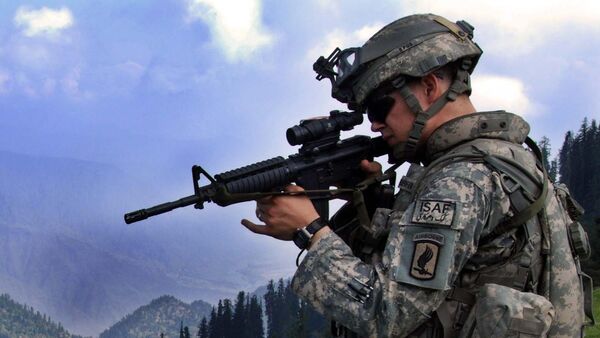Answering the question of how likely is that the US will abandon its policy of invading foreign countries, Lieven said:
"It is an important symbolic moment in US affairs…. But I don't think that in practice a huge amount will change."
President Donald Trump outlined his new strategy in Afghanistan in his address to the nation on Monday. He said that the United States would continue cooperating with Kabul, but he stressed that this assistance would not be endless.
"What is important, of course, is the new commitment to stay on in Afghanistan. But in fact America has long in practice abandoned any hope of establishing real democracy in Afghanistan. This campaign is about avoiding humiliation of defeat from the hands of the Taliban," Lieven stated.
In particular, he vowed to increase the US military presence in Afghanistan, contrary to his initial campaign promises. He also pledged that US forces will stay and "fight to win," arguing that withdrawal of troops from the war-torn country would create a vacuum for terrorists to fill.
President Trump also underlined that US support was aimed at fighting terrorism and that Washington would not engage in nation-building in Afghanistan.
"Trump is now very dependent on the military… partly because he needs the military to re-establish credibility in the face of all these accusations of, you know, supposed Russian interference and Russian influence in his administration. So, largely for domestic political reasons he is in a position when he cannot defy the US military," the expert concluded.
Trump has denied that his campaign colluded with Russia. Moreover, Russian officials have repeatedly refuted claims that Moscow interfered in the US election, saying the absurd allegations intended to defocus public attention from actual instances of election fraud and corruption, as well as other domestic issues.



